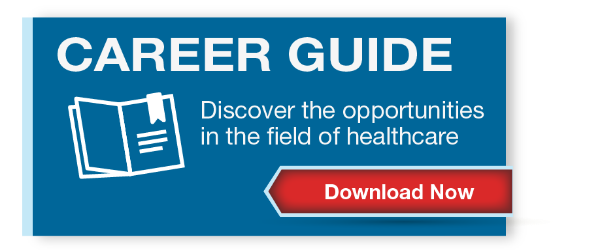 If you think the only way to get in the healthcare field is to complete a full degree program, you’re ignoring some great options. Healthcare certificate programs offer another way to launch your career, and the shorter timeframe makes sense for a lot of people.
If you think the only way to get in the healthcare field is to complete a full degree program, you’re ignoring some great options. Healthcare certificate programs offer another way to launch your career, and the shorter timeframe makes sense for a lot of people.
If pursuing a degree isn’t ideal for your situation at the moment, it’s a good idea to look at alternatives, with the certificate route offering a lot of pros and relatively few drawbacks.
1. Jump Right In
Getting into healthcare can take less than a year when you pursue a certificate. Because you don’t have to get a bachelor or even an associate degree, you can get into a field without spending two to four years in school. For example, our phlebotomy program can be finished in as little as six weeks. That type of timeline is great news for anyone who already has some school under their belt or someone who wants to start school, finish and get in the job market quickly.
Certificate programs like phlebotomy focus on training you with the specific skills you’ll need to be successful right when you graduate. Even though you’re not in school for as long, the programs at Nebraska Methodist College are still led by experienced professors who know their stuff, so you can be sure you’re getting a great education.
2. Job Satisfaction in 12 Months or Less
Just because healthcare certificate programs are shorter than degree programs doesn’t mean they’re any less interesting or that the outcome will be less rewarding. If you’re thinking about working in the medical field, you probably want a career where you can actively help improve people’s lives. In a position like medical assistant, you’ll work directly with patients, making an impact you can see immediately. Healthcare jobs are generally fast-paced, exciting and important, and the jobs related to certificate programs are no exception.
3. Employers Are Looking for YOU
Just like nurses and doctors, jobs that require a healthcare certification are in high demand, and a lot of them have a faster than average growth outlook. That means there’s a better chance you’ll get a job right after finishing college. Plus, more openings mean more options, enabling you to better pick and choose the right company and position to fit your ambitions. This, combined with the knowledge that you’re making a difference, can lead to a long and satisfying career. It could also serve as a stepping-stone, which leads to the next benefit of getting a certification:
4. You Can Get Your Foot in the Door
While certificates can certainly lead to rich and fulfilling careers all their own, they often serve as the first step toward another job if that’s your ultimate goal. For example, if you finish your certification and are working as a CNA, you might decide you want to become a nurse. In this situation, your employer might provide tuition assistance to work toward your BSN, and you’ll have a good salary to support yourself while in school. That scenario makes more sense for some people than going straight into a BSN program while working a low-paying job and racking up debt. Plus, a certificate program is a great way to get experience in the medical world and build out your resume.
5. Perks Without the Wait
Job security is one big benefit of working in healthcare, but it doesn’t stop there. Salaries in healthcare are strong, too. Average wages for people entering the medical field are generally much higher than entry-level pay in other areas. Plus, you might enjoy things like healthcare benefits even when working part-time.
Whether you’re coming to college for the first time or have started down a different path and want to change course, certificate programs are worth looking into. At Nebraska Methodist College, we believe these programs are just as important as our degree options. Our courses are taught by top-notch professors and we do everything we can to support and prepare you for your career. Healthcare certificate programs are a great way to jump into the future you’ve always wanted.
Ready to get started but not sure what career is right for you? Learn more about the various healthcare fields available by downloading our free Healthcare Career Guide:
